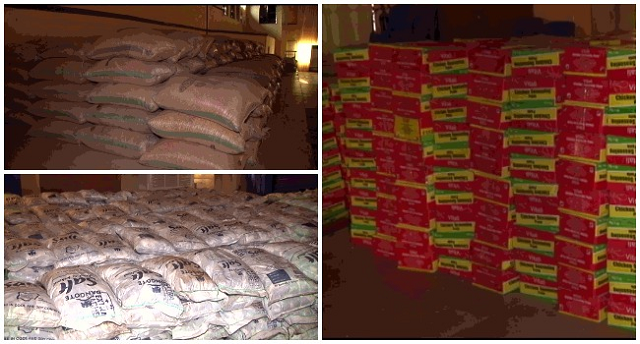France has contributed €8.4 million to the emergency food and nutrition needs of vulnerable populations in Burkina Faso, Chad, Mauritania, Nigeria, Niger, Mali, and Senegal.
This fund will support World Food Programme’s (WFP) efforts at alleviating the impact of conflicts and rising food prices on the food security situation in the Western and Central African region, a statement on Saturday stated.
It added that the contribution will enable WFP to provide country-specific response including food distributions, nutrition support and school meals for 469,000 people affected by escalating conflicts, climate change and rising food prices in the region.
“The economic impact of COVID has driven more people into hunger in a region already hard hit by conflict and the effects of climate,” WFP’s Regional Director for West and Central Africa, Chris Nikoi, said.
READ ALSO: NITDA Set To Train 10,000 IDPs In Digital Literacy
“Every day more people are leaving their homes looking for safety and food. We thank France for maintaining and increasing its support to the World Food Programme for the most vulnerable. “
France has been a long-standing partner of WFP, and its contributions have been increasing steadily since 2017 to meet the growing needs of the most vulnerable communities.
“This contribution from France is particularly in line with its International Strategy for Food Security, Nutrition and Sustainable Agriculture (2019-2024), one of the five objectives that aims to strengthen assistance actions to pop+ulations in vulnerable situations and to improve their resilience,” Regional Cooperation Advisor for West Africa in the French Embassy in Burkina Faso, Houcine Dahmane, said.
Through voluntary contributions from its donors, WFP said it had scale up its operations in 2020 and assisted 18.2 million people in the West and Central African region, a significant increase from the 10.6 million reached in 2019.
Based on this success, WFP plans to assist up to 17.6 million people during this lean season, with special attention to areas with access challenges, such as central Sahel and northern Nigeria.
In central Sahel, Chad and Nigeria, WFP said it plans to assist nearly 2.2 million young children and pregnant or breastfeeding women, with a nutrition treatment and preventive interventions.












